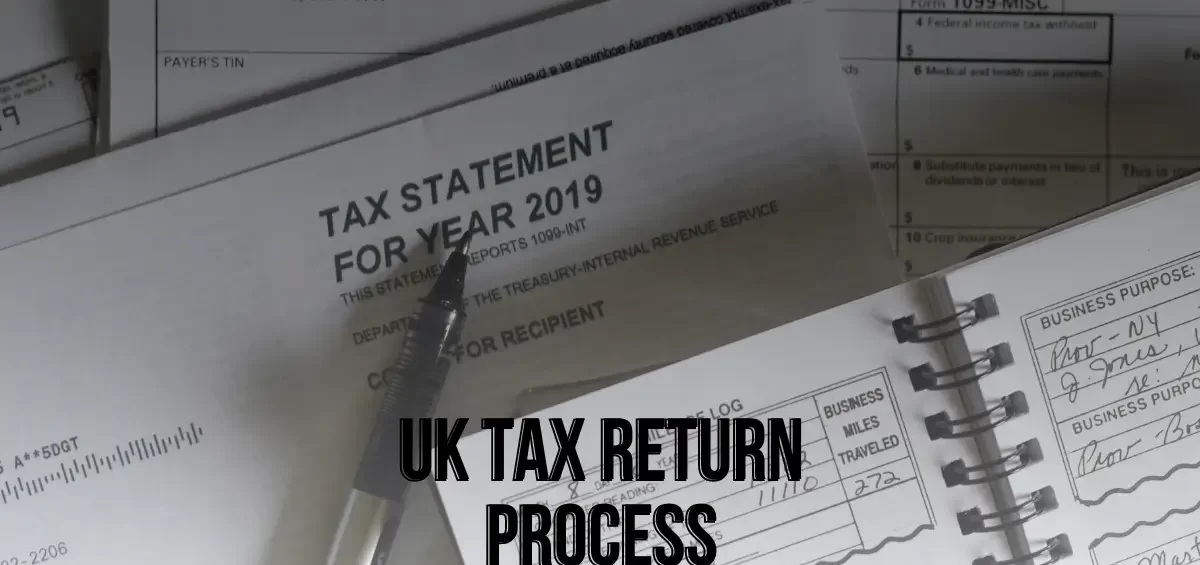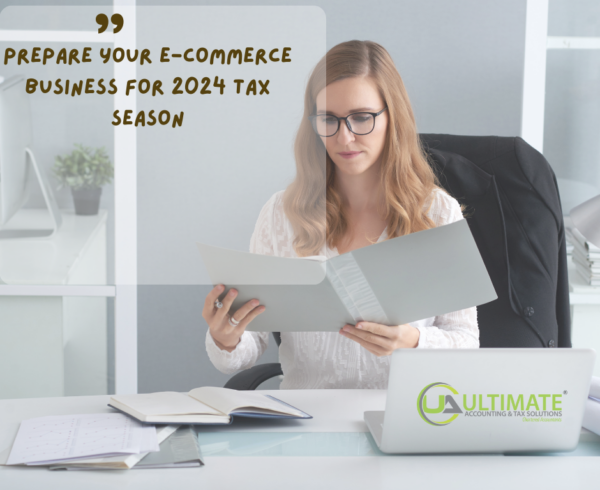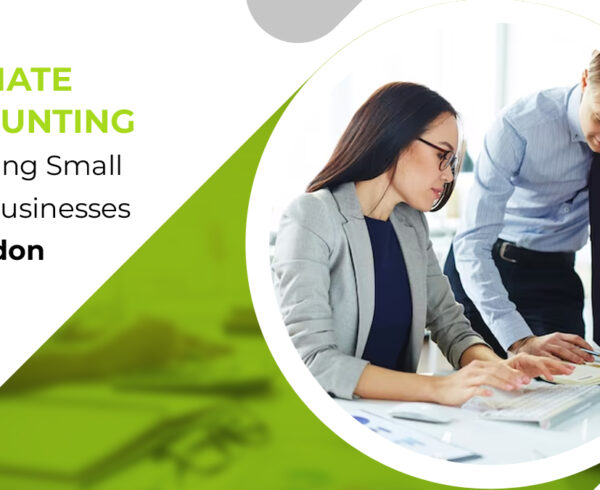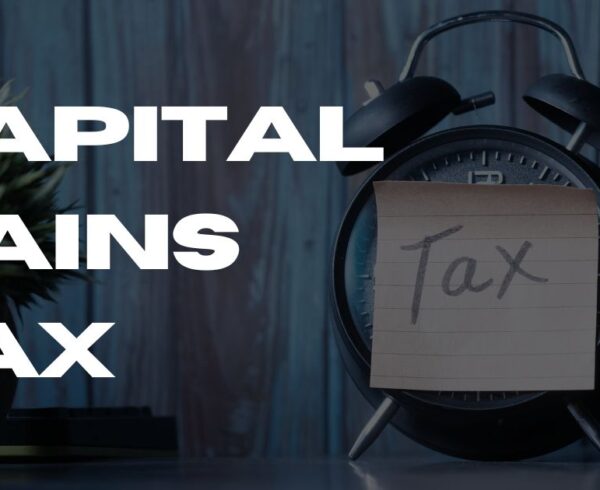If you’re struggling with the UK tax return / Submission process and need some guidance, Ultimate Accounting & Tax Solutions will be more than happy to help you!
Getting your taxes sorted can be hard, especially if you don’t know how to do it. That’s why we’ve created this step-by-step guide to help you understand the UK tax return process. We’ll tell you everything you need to know clearly and concisely, from how to get the information you need to how to send in your return.
By the end of this guide, you’ll have the knowledge and confidence to tackle your tax return easily. Let’s get started!
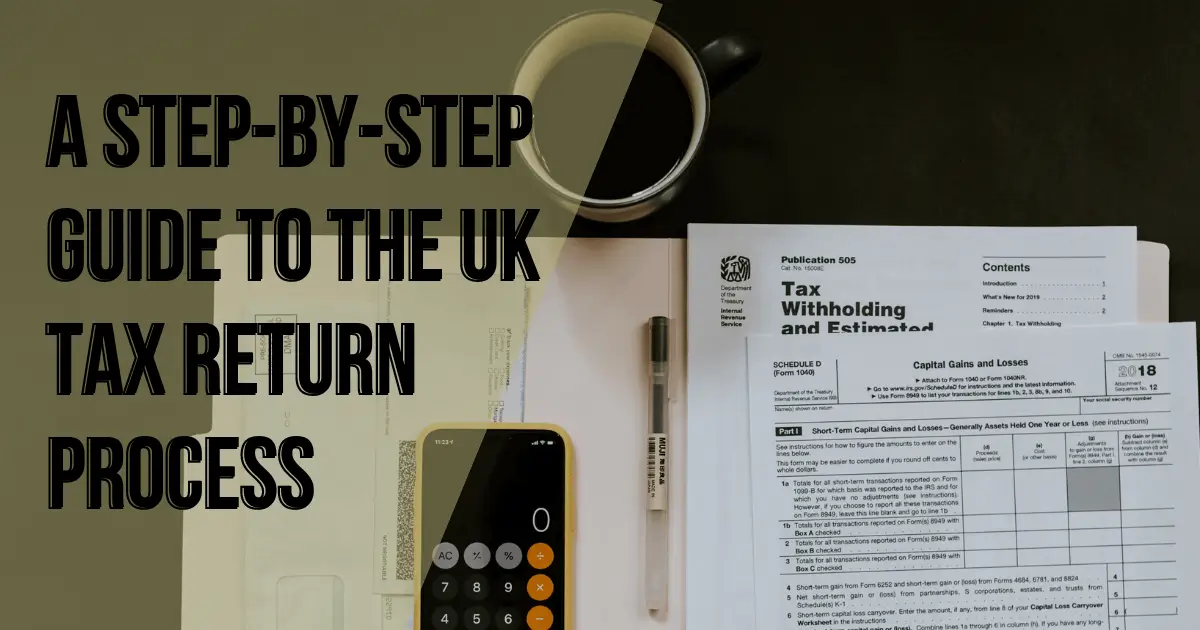
Step By Step UK Tax Return Submission Process
-
Register your self-assessment
If you’re filing a Self Assessment tax return for the first time, you’ll need to register with HMRC first. You can register online via HMRC’s website. Depending on whether you’re self-employed, registering a partnership, company director, rental income, etc. the process will vary. You should choose the option that applies to you.
-
Get your unique taxpayer reference number (UTR number) & set up a government gateway account
When you register for self-assessment or form a limited liability firm, a UTR number is assigned to you. You can also contact HMRC at 0300 200 3310 if you’re having trouble locating your UTR. To answer security questions, you’ll need to have details about yourself to hand, like your name and National Insurance number. This will be needed for identity verification purposes!
The HMRC suggests not waiting until the last minute because the entire procedure can take up to 20 days. Establishing access to your Gateway account early is recommended.
-
Ensure that the information you have is genuine
Make sure you have the following before you begin:
- Taxpayer Identification Number (UTR)
- Keep all receipts for business-related costs that you incur under your National Insurance number.
- Complete documentation of your employment-related earnings, such as your P60, P45 (if you resigned during the tax year), P11D (if you received any benefits or paid any expenses that weren’t included in your payroll), and P2 (if you received a notice explaining your PAYE tax code).
- A sum that includes all rents collected so far
- Documentation from your bank attesting to your accrued interest
- Foreign earnings, partnership profits, and other sources of income are all fair game (one partner should also file a tax return for the partnership as a whole)
- A detailed account of any dividends you’ve been paid
- An overview of each and every state assistance you’ve received that was subject to taxation
- Total gains from the sale of assets
- Details regarding any financial assistance you may have received
- Please provide specifics regarding your pension contributions; you may be eligible to get a refund
- Specifics on any current-year tax payments previously made
The information above should only be used for the previous tax year, which runs from April 6 of the year before to April 5 of the year after.
-
Fill in respective sections
You need only respond to questions that apply to you. With Ultimate Accounting, you’ll spend less time searching for information because the programme will only display the parts that apply to you.
It also uses the information you give in real time to finish the application and inform you about any possible mistakes or tax breaks.
-
Submit your tax return
Your only remaining task is to take your time and carefully fill out your tax return. If you’re doing it online, there’s no rush because you can always save your work and return to it later.
Before you click “Submit,” double-check all the details you’ve entered. You can make changes up until then. Once it is complete, you will receive a confirmation and a code number. Take note of this number for future use as a reference.
As soon as we get your tax return, we will determine the exact amount that you must pay. You absolutely must make the payment by the due date.
-
Keep a record
It’s always good to keep a record of your returns. If HMRC decides to look into your tax return, you will need to show proof, such as receipts, bank statements, etc. You should keep the records for at least five years and ten months if you are a landlord or self-employed business owner.
Final Thoughts
This step-by-step guide will help you file your tax returns online. For any professional help or consulting, please contact Ultimate Accounting & Tax Solutions.
Our company is fully regulated by both the Association of Chartered Certified Accountants (ACCA) and the Institute of Chartered Accountants in England and Wales (ICAEW). Throughout Stratford, Canary wharf, Mile end, Barking, Dagenham, Ilford, Chigwell, Brentwood, Shenfield, Rayleigh and surrounding areas both in London and Essex, you can count on our top-notch chartered accountants to help. We would love to hear from you, so please get in touch today for a confidential discussion!

